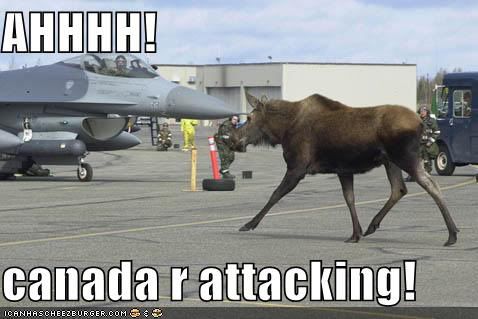The United States, for the first time, will use unarmed drones to patrol the skies along a portion of the U.S.-Canadian border, officials said Monday.
The Canadian Broadcasting Corp. said the first unmanned U.S. surveillance flights were to start along the sparsely populated 250-mile Manitoba border after a ceremonial launch Monday.
The $10 million Predator B drone, based at a military facility in Grand Forks, N.D., can detect a moving person from 6 miles away. Information the aircraft gathers will be transmitted to operators who will contact border agents.
The drones will need permission to fly in Canadian airspace, the CBC said.
There are 12 official border crossings along the U.S.-Manitoba border, though only two are open 24 hours a day.
Royal Canadian Mounted Police Staff Sgt. Ron Obodzinski told the CBC the drones will enhance authorities' efforts to prevent the smuggling of drugs, alcohol and people.
"The program is going to enhance our relationship between our American partners and the Canadian agencies," he said.
Michael Kostelnik, a U.S. border protection official, said the drones will provide vital information during these "dangerous times."
"There are vast parts of the border where, on any given day, we're not sure what's going on so part of this is to try to deal with the unknown and not be surprised," Kostelnik said to the CBC.
source
The Canadian Broadcasting Corp. said the first unmanned U.S. surveillance flights were to start along the sparsely populated 250-mile Manitoba border after a ceremonial launch Monday.
The $10 million Predator B drone, based at a military facility in Grand Forks, N.D., can detect a moving person from 6 miles away. Information the aircraft gathers will be transmitted to operators who will contact border agents.
The drones will need permission to fly in Canadian airspace, the CBC said.
There are 12 official border crossings along the U.S.-Manitoba border, though only two are open 24 hours a day.
Royal Canadian Mounted Police Staff Sgt. Ron Obodzinski told the CBC the drones will enhance authorities' efforts to prevent the smuggling of drugs, alcohol and people.
"The program is going to enhance our relationship between our American partners and the Canadian agencies," he said.
Michael Kostelnik, a U.S. border protection official, said the drones will provide vital information during these "dangerous times."
"There are vast parts of the border where, on any given day, we're not sure what's going on so part of this is to try to deal with the unknown and not be surprised," Kostelnik said to the CBC.
source
